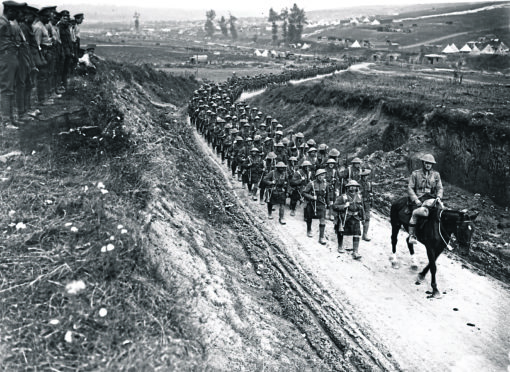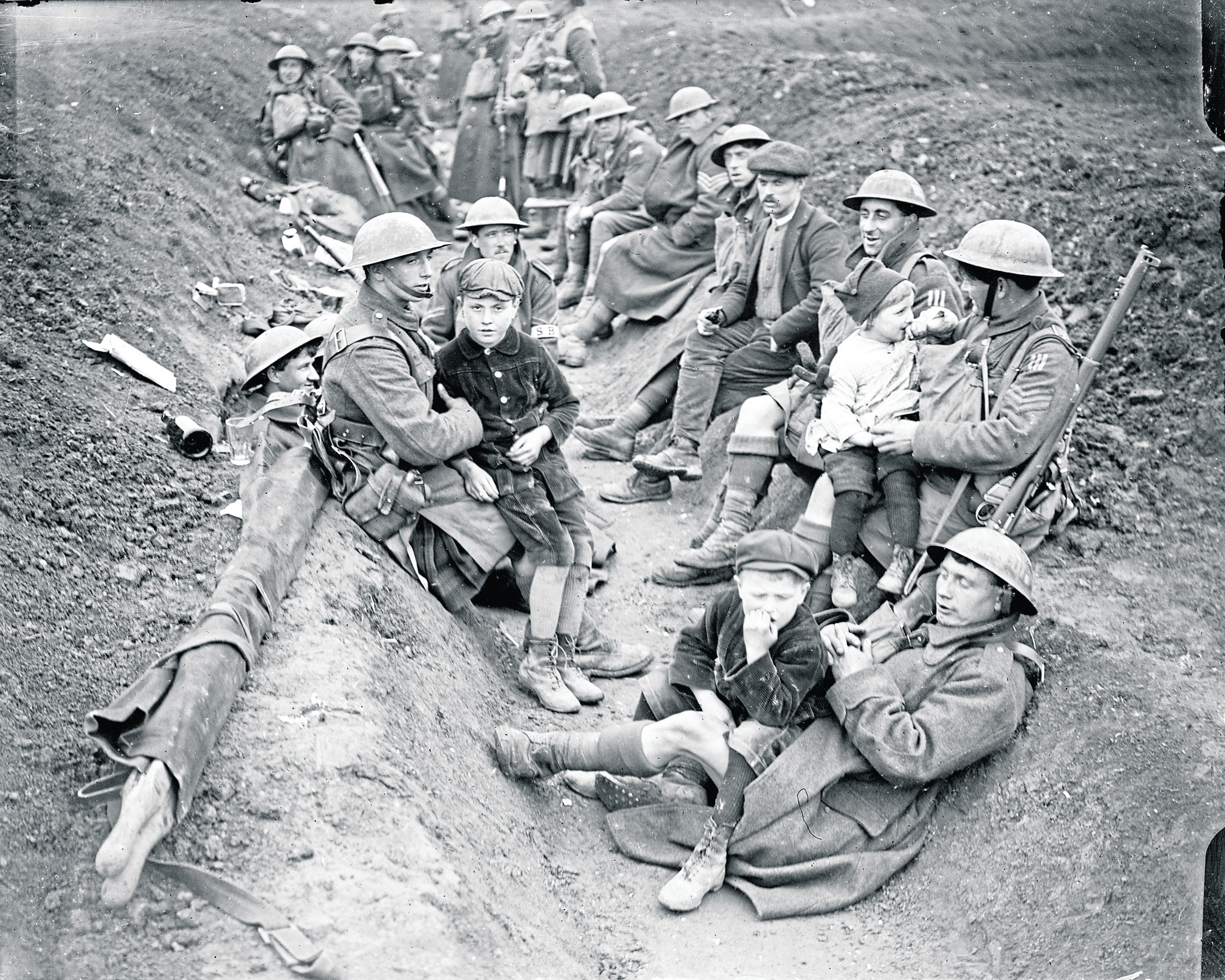By the autumn of 1918, many of the Allied combatants were weary of the endless slaughter and shelling which encapsulated their day-to-day lives in the Great War.
The old adage “We’re here because we’re here because we’re here” summed up the philosophy of many of the veterans, and especially those who had originally believed they would be involved in a short, sharp campaign.
But those in the Gordon Highlanders who were scattered across Europe were dogged, doughty individuals who showed the utmost resilience and resolve even in the thick of adversity.
Obviously they mourned their so, so many fallen comrades.
But they were also imbued with the unswerving attitude that the latters’ sacrifice would not be in vain.
And thus, as the war reached its climactic chapters, they maintained their discipline, professionalism and esprit des corps and gradually, inexorably, wore down their German and Austrian adversaries.
As the Press and Journal reported on November 12 1918, the war saw heroism on an unprecedented scale from all the north and north-east regiments.
We reported: “Highland and Lowland regiments have vied with each other in valour and endurance and, if in the north of Scotland we have been most deeply interested in the kilted battalions, it is not because we are lacking in appreciation of the Royal Scots, the Cameronians, the King’s Own Scottish Borderers and other regiments, whose deeds will never be forgotten.
“Never have British soldiers been subjected to a more cruel ordeal than in the last week of March 1918 and it is to the eternal honour of the Highland territorials that they emerged with prestige enhanced.”
Those who maintain the legacy of the Great War make no distinction between the myriad acts of gallantry from so many men across Aberdeen, Aberdeenshire, Moray and Inverness to Orkney, Shetland and the Western Isles.
Ruth Duncan, curator of the Gordon Highlanders Museum in Aberdeen, believes there was no single response from the troops as they reached the end of the conflict.
Instead they reacted to the impending Armistice with a combination of satisfaction that they had served their country well, relief at the looming cessation of hostilities, tempered with anguish for their fallen friends … and optimism at the prospect they would soon be reunited with their loved ones in Scotland.
She said: “Many of the men had been involved in the conflict for years. They were tired and, understandably, they wanted to bring it to a successful conclusion.
“When you look at all the different battalions, some of which were in France, and others in Italy, there was no thought of them relaxing or dropping their guard.
“By that stage, the more senior troops had seen a lot of their colleagues either being killed or wounded in action. Few had remained completely unscathed and they were fatigued.
“That took its toll, but the Gordons were a very close-knit group and these were proud men, brave men, who had been through an awful lot in the campaign.
“The average age of the troops was down into the 20s in the latter half of 1918. They had to learn a lot very quickly, but to their credit, they rose to the challenge magnificently.”
The different battalions kept diaries of their day-to-day activities and they provide a snapshot of what was happening in these last few weeks.


